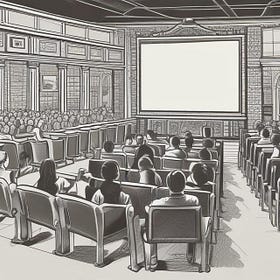Failures or Life Experiments?
Take up any self-help books or books on personal or corporate success, there is a very good chance that you’ll be told that you need to fail to achieve success. It’s a heuristic built into a lot of people because of its repetition, and any “guru” will spout it to sound like they are an expert too.
But is it true that as long as you fail in certain ways, you’ll be successful in the end? Taking a first principle view, I would like to break this down and discuss if one needs to fail to achieve success and what kind of failure can lead us to success.
Do we need to fail to be successful?
Let us look into the definition of failure. Based on the reading on many online dictionaries…*drum roll*
To fail is to be unsuccessful!
Trivia: the word “fail” came from the old French word, “faillir”.
So failure is a state in time and you have failed…till you can switch the state from “fail” to “success”. Ok…so I guess we are failing at something somewhat till we switch the state over to “success”.
Right, so based on the meaning of “fail” then the answer is yes, we fail first then move to be successful. At this point now, it’s going to be difficult to determine if you NEED to fail to be successful because it is just an unavoidable state as long as you want to run that particular race. Let’s pause here! Maybe what we do need is to conduct experiments then! The experiment FAILED when it did not give us the success we thought we might be getting at the start of the experiment.
Now that is a different perspective! To be successful, we need to conduct life experiments instead! When we adopt this perspective, we know that life experiments need time to plan and design:
Ensure that it can lead to success.
Checkpoints and metrics to determine if we are getting closer or further to success.
To contain data and information useful for “de-briefing” when it failed.
Point (3) leads to my next point, we need to learn from failed life experiments to be successful. Not the short form - we need to fail to be successful.
To fully digest the failure, we will need to emotionally digest it first, and complete the feedback loop by sitting down and doing a debrief, either by ourselves or with a mentor. After the debrief move to the next step and that is to integrate the lessons learned into the design of the next life experiment!
Conclusion
“We need to fail to be successful.” is too watered-down advice. Rather the longer form should be, failure is just a state in time. If we want to be successful, we need to conduct life experiments. Time is needed to plan these life experiments to reach success and when it fails, we hit the next objective which is being able to learn something actionable and useful for the next life experiment.
All the very best to my subscribers and readers!
What are your thoughts on this? What did you learn from your previous life experiments? Will be keen to learn from you, if you are willing to share!
To continue supporting my work, consider sharing this and get me a “book” or two over here. :)
How To Give Good Feedback
Many institutions here in Singapore will usually ask participants to give their feedback on the course after every run or session. I do look forward to the feedback, to see where I can improve and make my next run better.
Study History: Your Life and Career Depends on It!
I am a big fan of history, especially ancient Chinese history. This is especially true after I attended the 3rd Language Summit in Bangkok. Along with language, history has a lot to teach us.






